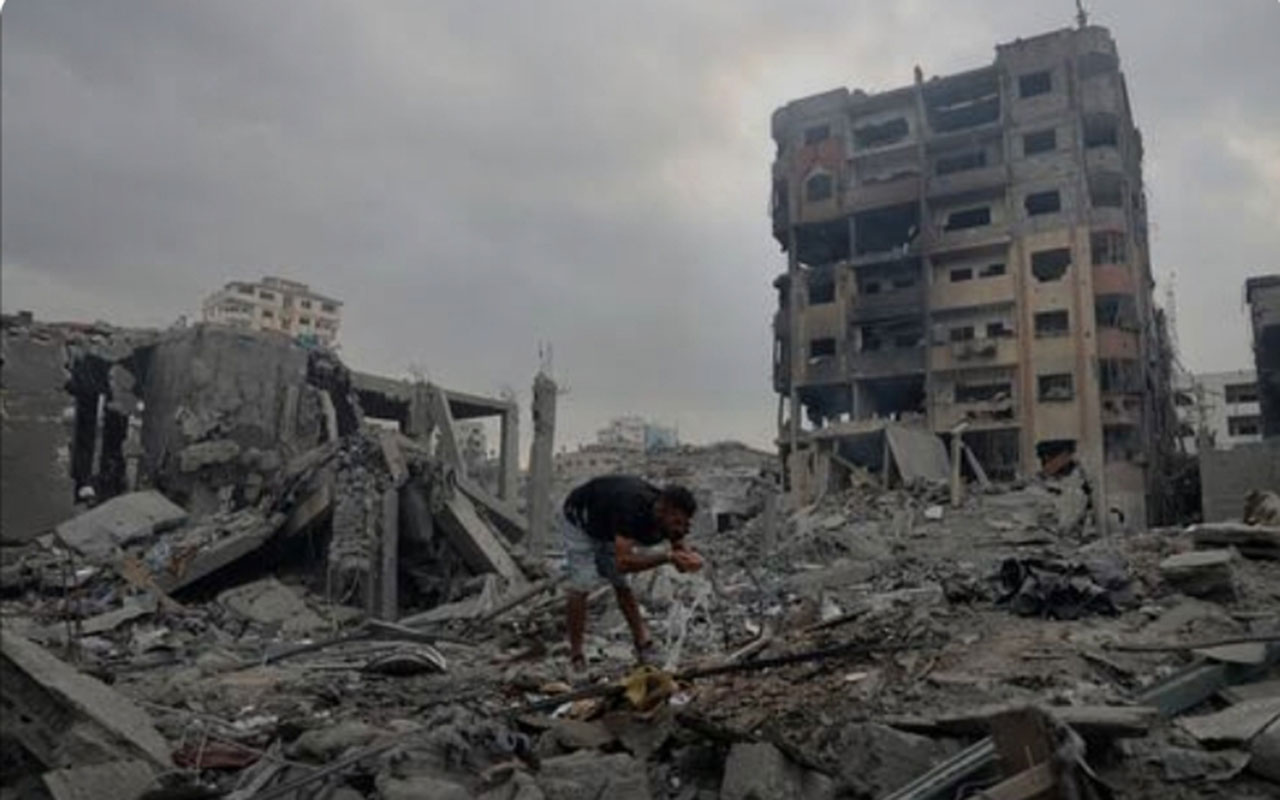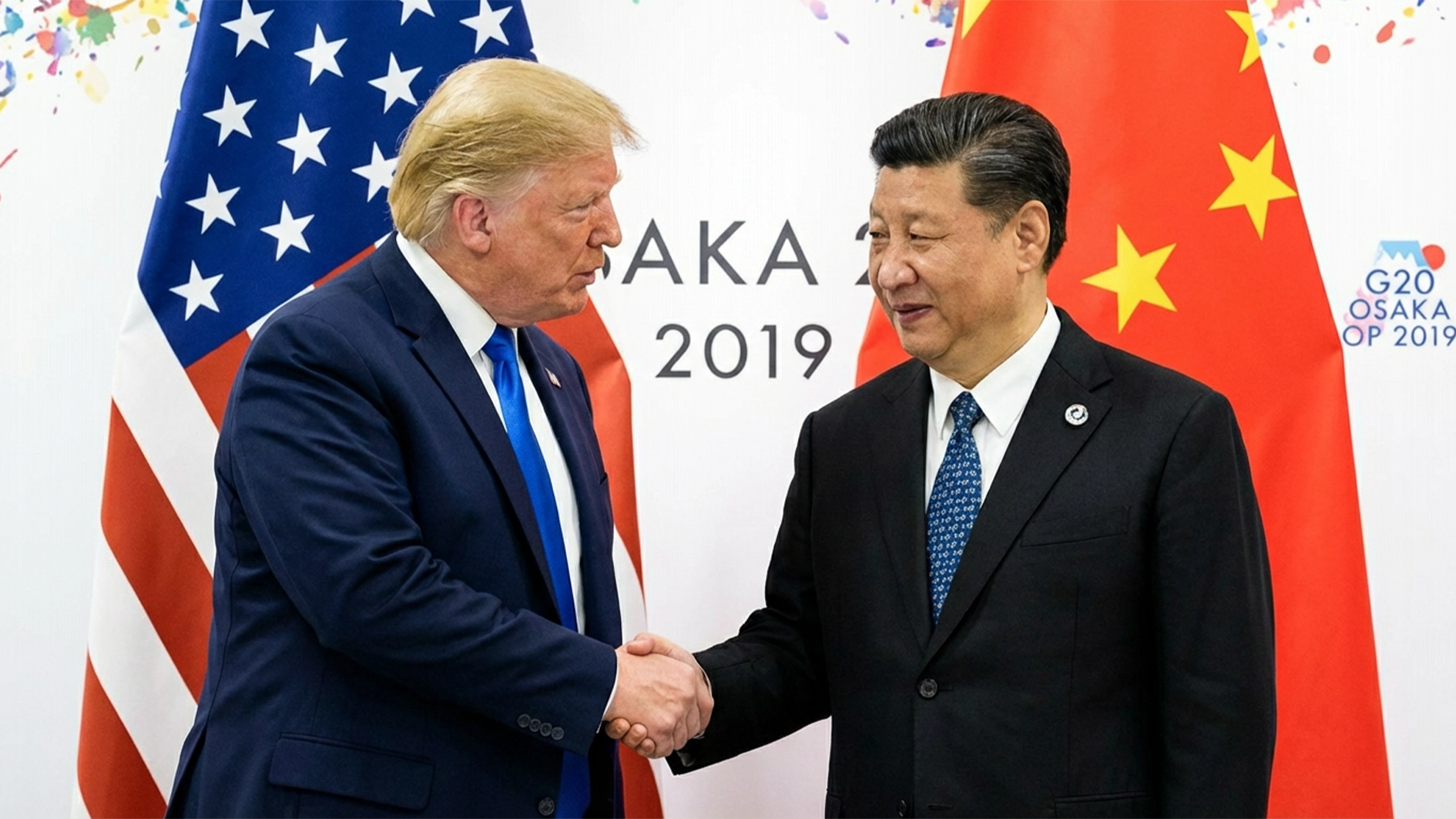
The tension generated by the current Israel and Palestine war has put the world on edge. NGOZI EGENUKA reports that although the conflict has the possibility of destabilising and botching the effort to find lasting peace in the region, other countries are unwilling to join the conflict.
On Monday, the head of the United Nations Agency for Palestinian Refugees (UNRWA), Philippe Lazzarini, at a United Nations Security Council emergency briefing warned urgent ceasefire is a matter of life and death for millions in the Gaza Strip.
According to the report by Al Jazeera, an international English-language news channel, Palestinians in Gaza are facing a life-or-death crisis aggravated by the struggle to deliver aid to the Strip’s more than two million inhabitants.
“The level of destruction is unprecedented, the human tragedy unfolding under our watch is unbearable,” the official said, adding, “The current siege imposed on Gaza is collective punishment.”
More than half a million Palestinians have been forced from their homes due to Israel’s onslaught, (which is in its third week) and are now sheltering in crammed UNRWA schools and buildings, with scarce food and water and often nowhere to sleep, Lazzarini said.
He added: “Hunger and despair are turning into anger against the international community,” adding that the meagre aid allowed in through Egypt from last week was nowhere near sufficient.
Israel began allowing limited aid into Gaza on October 21, but in-depth inspections of each convoy have caused lengthy delays. Israel has also categorically refused to allow fuel to be shipped in, leaving the enclave’s few operational hospitals at risk of closure.
On Sunday, Palestinians, desperate due to continued blockade and bombing, broke into UN warehouses, taking wheat, flour, and other basic survival goods.
“A further breakdown in civil order will make it extremely difficult, if not impossible, for the largest UN agency in Gaza to continue operating, “ Lazzarini warned the UNSC assembly.
As the fight between Israel and Palestine escalates, there are concerns that it may threaten world peace if not checked, especially as nations are already taking sides, tilting towards religious affiliations, which are a recipe for a wider conflict.
America for instance, has been loud about its support for Israel and has expressed commitment to offer aid.
They, alongside other Western leaders, have publicly embraced Israel’s right to defend itself, and are also expressing their willingness to support her, in case of a conflagration.
Last Friday, thousands of Muslims around the world embarked on a protest, seeking an end to conflicts in places like Jordan, Tunisia, Egypt, Turkey, and others.
Many Islamic states have also called for an immediate ceasefire, with many of them incensed at the conditions in Gaza and expressing solidarity with Palestinians. While they demanded military action against Israel, others said Arab states should consider using other methods to stop the bombardment of Gaza.
The fight has led to the death of nearly 5,800 Palestinians so far from Israel’s airstrike in the Gaza Strip. The number included 305 children, 173 women, and 78 elderly people. More than 15,273 people have been injured as well.
Israel’s fury was triggered by a horrific attack carried out by the Islamic terrorist organsition, Hamas, who murdered about 1,400 of its people, including 260 at a music festival in Re’im. The Hamas fighters also took hostage, Israeli soldiers, civilians, and citizens of other countries.
The United Nations reported that more than 1. 4 million Palestinians, nearly half of Gaza’s population, have been internally displaced.
Fears of a humanitarian crisis were heightened after Israel cut off food, water, electricity, and fuel supplies to Gaza.
In the midst of these, Hamas has continued to unleash a barrage of rockets into Israel relentlessly.
The Gaza-Israel conflict has been ongoing since 2006. Hamas avoided major confrontations with Israel in 2022 and most of 2023, instead covertly preparing for its major offensive, Operation Al-Aqsa Flood.
Hamas said it received support from Iran for the attack, which it says was in response to Israeli settler violence, the blockade of the Gaza Strip, the desecration of the Al-Aqsa Mosque in Jerusalem, as well as Israeli atrocities against Palestinians over the decades.
The conflict in the region has been the subject of numerous international conferences dealing with historic rights, security issues, and human rights. Though the majority of the peace efforts have centred on a two-state solution, which involves the establishment of an independent Palestinian state alongside Israel, the Palestinians have remained indisposed to that idea.
Speaking on the implications of the ongoing conflict on world peace, a professor of Political Science, at the Lagos State University, Kayode Soremekun, said that Israel is used to fighting on all fronts from history.
He noted that in the 1967 and 1973 wars, it fought from all sides, adding that it might not be an exception given that the country is a social formation primed for war as almost all its citizens are soldiers due to the nation’s policy of mass conscription.
He, however, thrashed the idea that there might not be a Third World War even if America intervened in the conflict. He urged all players, especially mediators like America to be careful since it has a lot to lose being a hegemonic power in the international system.
To restore peace in the region, he said all parties should come together to resolve the impasse, explaining that the issues at stake are about deep-seated historical animosities in which one side thinks it can cancel out the other, which is impossible.
“The Palestinians cannot be driven to the sea and you cannot annihilate Israel. The best thing is to go back to the Oslo Accords, which provided for a two-nation solution. One would not cancel out the other. My problem is that the usual victims of war, women and children are suffering. I have read that members of the political class would go into the bunker to hide. Those who are doing the fighting would not do the talking and vice versa. Every war has casualties, which is usually the underclass,” he said.
A professor at the Nigerian Institute of International Affairs (NIIA), Femi Otubanjo, is not certain that the ongoing clash between Israel and Hamas would pave the way for other Arabs joining the war as the danger of doing so would be so intense and can lead to a global war.
“America is a protector of Israel. So, I am not sure they would enable Saudi Arabia or Qatar, which are in the orbit of American protection to join the war against Israel. Although there is a possibility, the probability is low that it would escalate to that extent because, since the last war, the Middle East has moved towards a diplomatic solution rather than war.
“The Arabs have lost all wars against Israel. So, they are not sure to win this one. On top of that, America has helped to push the most powerful Arab nation, Egypt, to a kind of diplomatic accord with Israel. So, if Egypt is not leading the war, I don’t see any other country doing so. Syria has been sufficiently weakened by its internal conflict to offer any major aggression towards Israel. Turkey is a NATO member, so it would be unlikely to do it. Iran would gain nothing except an ideological, or sectarian hegemonic agenda. I don’t think they have much gain to risk a war,” Otubanjo explained.
On restoring peace to the Middle East, he stated that it has been a difficult feat to achieve as all diplomatic expertise and wisdom has been unable to resolve it.
He said the best solution is a two-state solution, which has always been rejected by Hamas, contrary to world perception.
“Hamas and Hezbollah have determined that Israel will not exist and that is impossible because Israel is a nuclear power,” he said.
According to him, Hamas and Hezbollah benefit from these conflicts, which provide funds from all the rich Arab countries. Without these constant conflicts, Hamas and Hezbollah, he pointed out, would not be able to raise funds as they do from all the rich Arab nations. So, they have to constantly maintain these hostile attitudes towards Israel, he said.
He further noted that the West Bank, for example, is living in peace with Israel, even as it has Hamas’ presence. It is only Gaza, he said, that has conflict with Israel.
International political analyst and conflict manager, Aladetan Abiodun, predicted that the fight would escalate if both parties refused to embrace peace. Like Soremekun, he, however, disagreed with the notion of a world war due to the catastrophic impact it would cause.
“I don’t think the Israel-Hamas conflict would escalate to a third world war, he said.
According to him, other Arab countries can only sympathise with Hamas, but cannot join the war because war is not what people just dabble into without proper planning and preparations.
“Israel also has a pact with some Arab countries, which makes it practically difficult for all Arab countries to join Hamas in the fight against Israel.
“We must state very clearly that this is not the time to play the blame game as to who is right or wrong. All we need now is peace. The reason is that both Israel and Hamas have their various claims and faults. Hamas cannot claim to be freedom fighters, adopting a terrorist approach as a way of presenting their demands.
“Also, the Apartheid system that the Israelis are subjecting Palestinians to is not fair. Peace is not the absence of war, but the presence of justice.
“In the quest to answer the ultimate question of who owns the land, we all know that question will be based on power politics because, in the international system, power speaks louder than equity and fairness,” he said.
A researcher in Middle East history and scholar of History and Strategic Studies at, the University of Lagos, Mayowa Adeyeye, said Arab countries will not join on the side of Hamas and expressed doubt that Syria, Iran, Egypt, Lebanon, and Saudi Arabia would muster the military assault on Israel given their past encounters with the Zionists.
“During a similar attack on the Israeli side by the combined forces of the Arab countries, Israel had an overwhelming victory and drove back Syrian forces from the Golan Heights. They also took control of the Gaza Strip and the Sinai Peninsula from Egypt.
“Equally, the Jordanian forces were sacked from the West Bank, and Israeli forces were left in commanding control of Jerusalem. This explains why Israeli forces could withstand the combined forces of Arab countries and of course, Israel has several bilateral agreements with some Arab countries such as Egypt and Saudi Arabia,” he explained.
He suggested that even if America intervenes with its military, the fight won’t lead to a world war. China, he said, has been neutral in most cases involving territorial expansion, so can only offer aid and diplomatic support.
“In the pecking order of military powers in the world, Israel is number four following China, Russia, and America in that order. America and all NATO alliances are in agreement not to attack Israel. Russia is grappling with war with Ukraine, while China is non-involving. So, there is no possibility of a world war,” he said.
Adeyeye, however, called for a “one-state solution” rather than a two-state solution to the Israeli-Palestinian conundrum.
Buttressing his point, he said: “Almost the entire land has been taken over by Israel and Gaza has continually posed a territorial threat to Israel. The “one-state” solution might lead us to a confederate Israeli-Palestinian state, which would cover all of the present territory occupied by Israel, the West Bank, East Jerusalem, the Gaza Strip and Golan Heights.”






